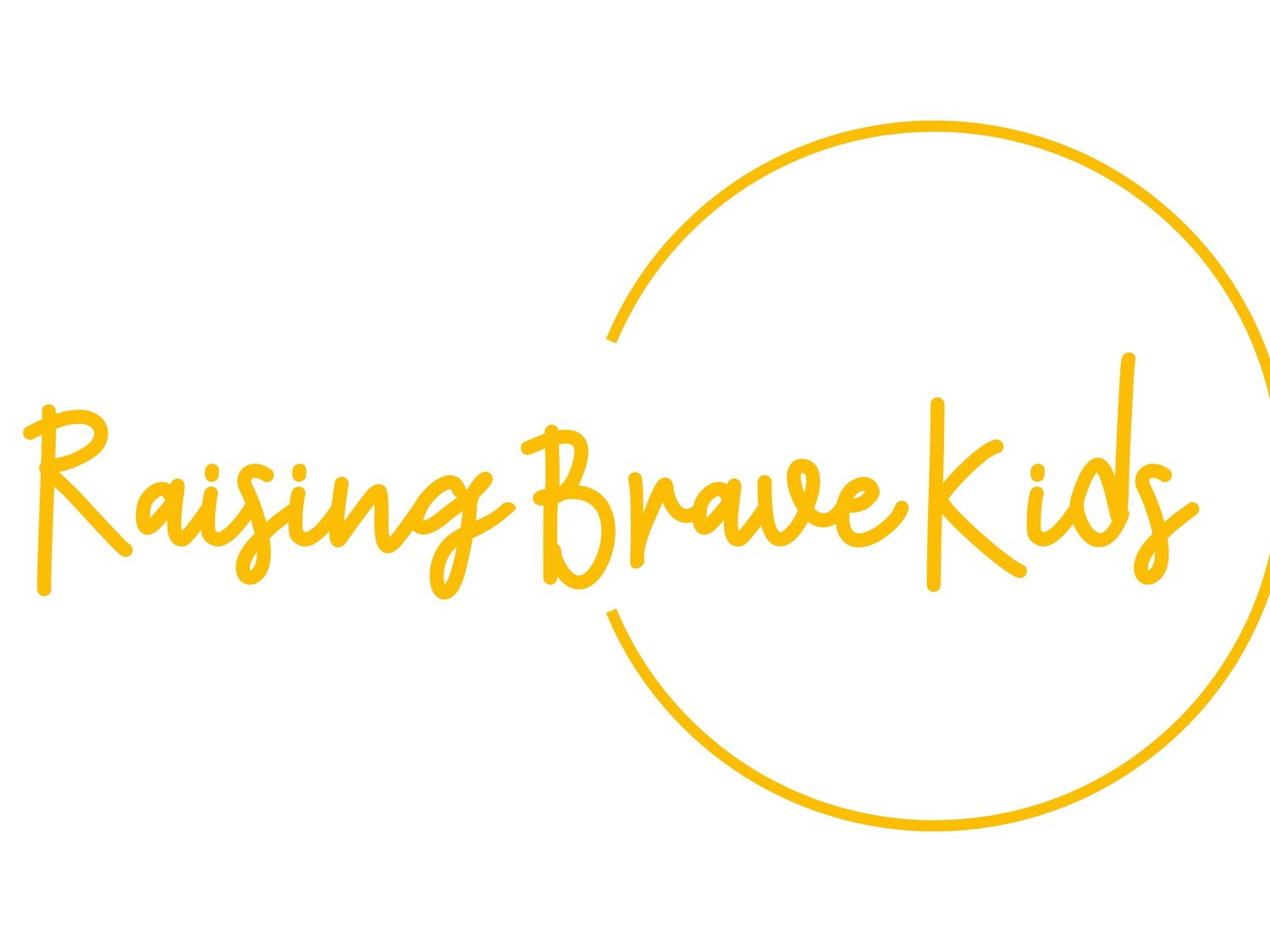Supporting Children with PANS or PANDAS
When a child suddenly changes—behaviorally, emotionally, or physically—it can feel frightening and confusing. You might notice intense anxiety, OCD-like symptoms, food refusal, regression, trouble concentrating, or explosive emotions that weren’t there before. These rapid shifts can leave families feeling overwhelmed, worried, and desperate for answers.
At Raising Brave Kids, we help children and teens experiencing PANS (Pediatric Acute-Onset Neuropsychiatric Syndrome) or PANDAS (Pediatric Autoimmune Neuropsychiatric Disorders Associated with Streptococcal Infections) using a compassionate, stabilization-focused approach grounded in evidence-based mental health treatment.
We provide support in person in Portland, OR and online across California & Oregon.
What Is PANS or PANDAS?
PANS and PANDAS describe sudden onset or sudden worsening of anxiety, OCD, eating difficulties, or behavioral changes in children, often triggered by an immune or inflammatory response.
PANDAS occurs when symptoms are associated with a recent strep infection.
PANS includes cases triggered by other infections, immune responses, or metabolic stressors.
Symptoms often appear rapidly—sometimes overnight—and may include:
Sudden-onset OCD or intrusive thoughts
Separation anxiety or generalized anxiety
Sudden fears, phobias, or panic
Regression in skills (speech, handwriting, toileting, independence)
Irritability, emotional outbursts, mood swings
Sensory issues or motor tics
Severe food restriction or fear of choking/vomiting
Sleep disturbance
Trouble with attention, focus, or school performance
What the Research Says About PANS & PANDAS
PANS/PANDAS is a real clinical presentations recognized by many clinicians, with ongoing research improving clarity. The evidence suggests:
Sudden-onset OCD and anxiety are hallmark symptoms.
Research shows that children with PANS/PANDAS often experience abrupt development of OCD symptoms, anxiety, or food restriction (Swedo et al., 2012).
Neuroinflammatory responses may play a role.
Studies suggest that immune activation may affect brain circuits related to anxiety, mood, and motor control (Chang et al., 2015).
CBT and Exposure and Response Prevention (ERP) are effective treatments for OCD symptoms—even in PANS/PANDAS presentations.
The American Academy of Pediatrics and International OCD Foundation both reinforce that CBT/ERP is a key part of treatment, even when symptoms have a medical trigger.
Stabilization and reduction of avoidance improves functioning and long-term outcomes.
Behavioral and psychological interventions help restore functioning and reduce disability even when symptoms fluctuate (Murphy & PANS Research Consortium, 2017).
Families benefit from coordinated care.
Studies stress the importance of collaboration between mental health clinicians, pediatricians, and—when appropriate—specialists such as immunologists or infectious disease providers.
How We Support Kids With PANS or PANDAS
We focus on stabilizing daily functioning, decreasing anxiety, and reducing OCD-related impairment—even while medical evaluation or treatment is ongoing.
Our approach includes:
CBT & Exposure Response Prevention (ERP)
Even when symptoms have an immune or infectious trigger, behavioral symptoms respond well to ERP, especially compulsions, avoidance, food fears, and intrusive thoughts.
Kids learn to:
Tolerate distress safely
Reduce avoidance
Challenge OCD-like patterns
Build back independence and flexibility
ACT (Acceptance & Commitment Therapy)
ACT helps kids and teens:
Understand their emotions without panic
Build willingness to face difficult moments
Focus on values—like family, school, friendships, and creativity
Strengthen resilience during flare-ups
Support for Anxiety, School Avoidance & Emotional Regulation
We help kids:
Manage panic and overwhelm
Re-engage in school with step-by-step plans
Build body-awareness and calming strategies
Reconnect socially and rebuild confidence
Parent Guidance & Family Support
We coach parents in:
Reducing accommodation
Supporting exposures at home
Responding to emotional dysregulation
Setting compassionate boundaries
Creating predictable routines that stabilize symptoms
Collaboration With Pediatric & Medical Providers
With parent consent, we coordinate with:
Pediatricians
Psychiatrists & Psychiatric Nurse Practitioner
Infectious disease specialists
Immunologist or Rheumatologist
Neurologist
Dietitian
Occupational Therapist (OT)
School support teams
This ensures your child receives comprehensive care that is aligned and supportive.
Stabilizing School, Home, and Daily Life
PANS/PANDAS can touch every area of life. We help you create a plan that is:
Predictable
Reliable routines reduce anxiety and help kids regain stability.
Gentle but Structured
We introduce the right amount of challenge—never overwhelming, always supported.
Family-Centered
Parents receive concrete tools and scripts that reduce chaos and build confidence.
Rooted in Functioning
Whether symptoms fluctuate or stabilize, we focus on helping kids participate in daily life again..
Why Start Now?
PANS or PANDAS symptoms can feel sudden and overwhelming—but early support truly makes a difference. Research consistently shows that children who receive coordinated care early in the process have shorter flare-ups, less long-term disability, and stronger recovery.
“Early intervention leads to improved outcomes, reducing or eliminating impact before neurological changes occur.”
Source: PANDAS Physicians Network — Research Priorities & Roadmap “Findings highlight the benefit of early multidisciplinary evaluation and treatment.”
Source: Children’s National Hospital (2025) “Prompt behavioral, psychological, and medical interventions are believed to reduce disability and improve long-term outcomes.”
Source: PANS Research Consortium Treatment Guidelines (Murphy et al., 2017) “Targeted treatment was significantly associated with faster symptom improvement… earlier treatment predicted shorter flare duration.”
Source: Gromark et al., Frontiers in Neurology (2021) The sooner we support your child’s nervous system, emotions, and functioning, the more quickly they tend to stabilize—even when symptoms fluctuate.
A Steady Path Forward With PANS or PANDAS
When your child’s world changes overnight, you shouldn’t have to figure out the next steps alone. At Raising Brave Kids, we walk beside families with structure, clarity, and compassion—helping your child rebuild confidence and regain steadiness one small step at a time.
We offer child and teen therapy in-person at our Portland, Oregon office and online for families across Oregon and California. Whether you’re looking for specialized child therapy or practical parent support our team is here to help.
Contact us today or schedule a free 15 min consultation
SourcesPANDAS Physicians Network (PPN). Research Priorities & Roadmap to a Cure. (2021). https://pandasnetwork.org/research-priorities-pandas-pans-roadmap-to-a-cure/ Murphy, T. K., et al. PANS/PANDAS Research Consortium: Clinical Evaluation and Treatment Guidelines. Journal of Child and Adolescent Psychopharmacology (2017). https://pmc.ncbi.nlm.nih.gov/articles/PMC5740997/ Gromark, C., et al. “A Two-to-Five Year Follow-Up of a Pediatric Acute-Onset Neuropsychiatric Syndrome (PANS) Cohort.” Frontiers in Neurology (2021). https://pmc.ncbi.nlm.nih.gov/articles/PMC7870456/ Swedo, S. E., et al. “Pediatric Acute-Onset Neuropsychiatric Syndrome (PANS): Clinical Description of a New Disorder.” Journal of Child and Adolescent Psychopharmacology (2012). https://pubmed.ncbi.nlm.nih.gov/22356870/ Children’s National Hospital. “Therapy Approach Shows Promise for PANS/PANDAS.” (2025). https://innovationdistrict.childrensnational.org/therapy-approach-shows-promise-for-pans-pandas/ Chang, K., Frankovich, J., & Cooperstock, M. “Clinical Evaluation of Youth with Pediatric Acute-Onset Neuropsychiatric Syndrome (PANS): Recommendations from the 2013 PANS Consensus Conference.” Journal of Child and Adolescent Psychopharmacology. (Root paper summarizing neuroinflammatory links.) American Academy of Pediatrics (AAP). Clinical guidance on OCD assessment and treatment relevance for acute-onset presentations (referenced in PANS/PANDAS guidelines). International OCD Foundation (IOCDF). PANS/PANDAS resources and treatment recommendations. https://iocdf.org/pandas/

